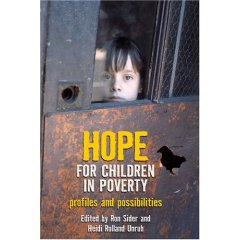Let’s begin with a confession: All I ever wanted to be was a Sunday School teacher. Not that my earliest experiences with Sunday School were positive ones. Actually, I can’t remember a single teacher from those early years when my family’s interactions with churches were – – well, inconsistent.Â
When a school friend invited me to her youth group’s Halloween party, I checked it out, and just never went away. I began moving toward that slippery slope called discipleship. Within a matter of weeks I went from “new member†of MYF on Sunday evenings to a “regular†in the morning high school class . Soon I recruited my younger sister and brother, getting them out of bed early, fed and decently dressed and out on the corner of our block to catch the 7:15 a.m. bus – – the only one that would get us to downtown Portland in time for Sunday School.
I knew that if I got us there, we were assured of a ride home, maybe lunch at a drive-in along the way, because of what seemed to be a host of caring adults who became family for us. In short order we found surrogate parents who accepted us, nurtured and challenged us, modeling a way of life that was winsome and contagious. Because of them, for more than half a century I have been, if not always a practitioner of Christian education, certainly a keen observer, sometimes harshly critical, more often lovingly hopeful.Â
I have often wondered why it is that some of us who, confronted by the Christ, come to experience the slippery slope; we feel called to action that takes us well beyond saying, “I believe.â€Â  I think I now understand that, because of who that church was – – urban, Methodist, progressive – – I was shaped early by a vision of Jesus as one who cared/cares for people of all sorts – – and who taught about the reign of God at the heart of which is justice.Â

It’s been a long trip from downtown Portland to pastoral ministry in New York City to ecumenical work in Richmond, Virginia. Much has changed in Christian Education along the way, but much remains the same. Children, from toddler to adolescent, still search for community and meaning. So, too, do grown-up children. That’s why, when a review copy of a new Judson Press book arrived in our mailbox at The Resource Center, it was an easy choice for this first entry: Hope for Children in Poverty: profiles and possibilities. What really caught my eye, however, was a name in the Table of Contents: Charles E. Poole. Popular Baptist preacher, pastor of “important†churches – – that’s what I knew about him. We even have a book or two of his on our shelves. But what’s he doing with the likes of Ron Sider, Heidi Unruh, and Marian Wright Edelman? And what about that chapter title? “Slipping Off on the Bible’s Sloping Slide.â€
My early formation kicked in, and I read the book. All of it. Poole talks about leaving the pastorate of “a wonderful congregation†to become an inner-city minister with the LifeShare Foundation, a charitable foundation working to “meet unmet needs in the lives of Mississippi’s most at-risk and underprivileged children.â€Â He speaks of meeting specific needs like diapers, refrigerators and utility bills, and of gatherings in apartment complexes to pray, learn Bible verses, talk about “God, life, and right and wrong . . . we also eat lots of cookies and drink lots of juice
The eloquent preacher talks about the slippery slope when he writes about how he responds to those who ask why he would leave the “normal†pastorate for his present ministry. First, he writes, “The answers to such questions are never simple. What we church folk refer to as a call is wrapped in quiet mystery that runs deeper than words.â€Â Acknowledging that, he adds, “I do have a rather simple answer. My answer is that I sort of slipped off on the Bible’s sloping side. Even if you place a perfectly smooth Bible on an even table on a flat floor in a level building, the Bible will still tile in the direction of whoever is most powerless, most voiceless, invisible, small, and poor.â€
Educators, it seems to me, have many choices to make, among them what it is that we will teach. To which Jesus will we introduce children of all ages? If we want to lead Christians-in-formation to the Jesus who was lopsided in his concern for the poor and the powerless, and if they are at all open, for whatever reason, to consider the mission at their doorstep, this book is powerful, practical, challenging, inspiring – – and it points directly toward that slippery slope. Read it at your peril. (On the other hand, you can just buy a copy and 10% of the proceeds goes to support ministry with children in poverty, and keeps them at a safe distance.)Â


1 Response to All I Ever Wanted to Be